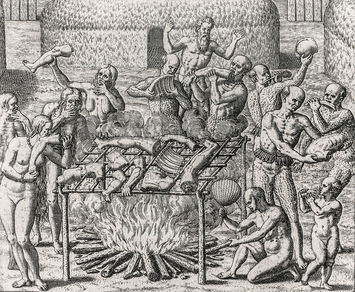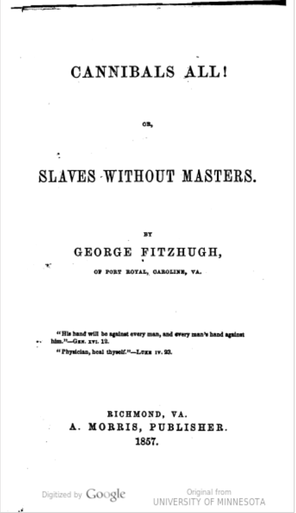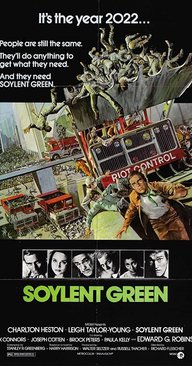CALL FOR PAPERS: GRADUATE ASSOCIATION OF FOOD STUDIES
LINK TO CFP HERE
 Theodor de Bry, Cannibalism in Brazil, 1557
Theodor de Bry, Cannibalism in Brazil, 1557 Well, that time has come. The Future of Food Studies conference will be October 4-6, 2018 at the University of North Carolina at Chapel Hill. We have launched our CFP inviting panel and paper proposals, due July 6, 2018.

Sometimes.
I want to personally invite submissions of papers and presentations exploring the histories of food that are less comfortable and comforting.
Because food is not always good. Food has not only served as a catalyst for horizontal connections among members of shared communities, but also as a conduit for expressions of raced, classed, gendered, economic, political, and ecological power.
While accusations of cannibalism have been used as a slur against populations construed as Other to the European imperial gaze, colonial plantations cannibalized the bodies of agricultural laborers in the production of sugar, citrus, and other commodities destined for European consumption. Thinking about cannibalism draws our attention to the importance of critical race theory, questions of agency, the politics of the archive, and attention to structures of power. Cannibalism is not constituted solely through the act of consumption, but in a constellation of ideas about human dignity, bodily sovereignty, and rights. Thinking broadly about how communities, ecologies, and bodies have been devoured by human food systems pushes us to address infrastructures of labor, production, and distribution beyond the kitchen or dining room.

Put another way, I want not just papers about cannibalism, but cannibalistic papers; papers that devour and digest the field of food studies itself. When we look upon the organization of GAFS and the field of food studies more broadly, what type of stories are we telling and which stories are left out? Which scholars and perspectives are we elevating? Which scholars of food are finding more comfortable homes for their scholarship elsewhere, and why? What structures of power are we ourselves complicit in through our scholarly practices as well as our intellectual work?
These questions should be constant food for thought, and will require much mastication. Dig in, load up your plates, and send your ideas our way.
 RSS Feed
RSS Feed